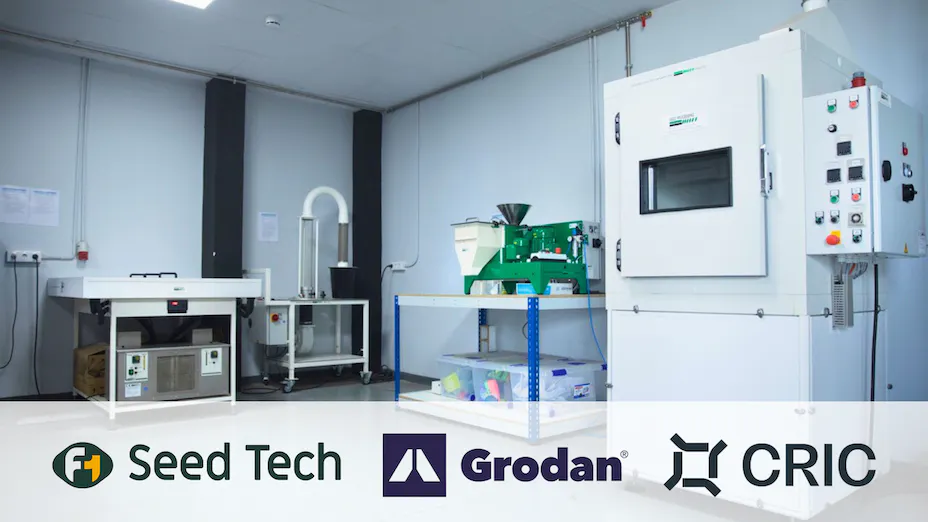This builds on a previous study that showed a 6 kg/m2 (1.23 lb/ft2)total production of dried flower annually over 5.5 crop cycles.
Grodan’s First Cannabis Trial Based in North America
Grodan and F1Seedtech, two innovative players in the horticulture industry have joined forces once again to conduct truly innovative cannabis cultivation research at the CRIC Labs (CRIC) in Montreal. These ongoing trials will explore various aspects of cannabis cultivation, including lighting, irrigation and climate management strategies, highlighting the potential for Grodan stone wool solutions and F1 hybrid cannabis seed now and in the future.
Our latest trials at CRIC Labs will build upon the collaborative study we, Grodan and F1Seedtech, previously conducted at the Wageningen University & Research (WUR) in the Netherlands earlier this year. Following the completion of that study, we uncovered three exciting discoveries:
- The total production achieved with F1 hybrid seeds can reach 6 kg/m2 (1.23 lb/ft2) of dried flower annually when extrapolated to 5.5 crop cycles per year.
- The flowers grown from F1 hybrid seeds had higher THC levels of 29%.
- Showed more consistency between production batches.
“Grodan understands that production economics are top of mind for all producers. That’s why we are going to continue to build on our previous findings that created higher yields with higher THC levels – which ultimately increase the gross margin in cannabis cultivation by a minimum of 15%. We are confident these new trials will not only support our previous findings, but also will show new ways to improve cultivation practices which ultimately improve our customers’ bottom line to increase efficiency and profitablity.” – Frank Janssen – R&D PROJECT MANAGEMENT AT GRODAN
The new trials we’re conducting at CRIC in Montreal began in August 2023 and will run for one year. During this time, our two companies will conduct five cultivation experiments at CRIC to investigate the benefits of Grodan growing media in combination with F1 hybrid seeds. Different agronomic treatments will be analyzed, including lighting, irrigation and climate management strategies. The results will give us insights into the optimum cultivation conditions, flower yields and baseline cost benefits.

